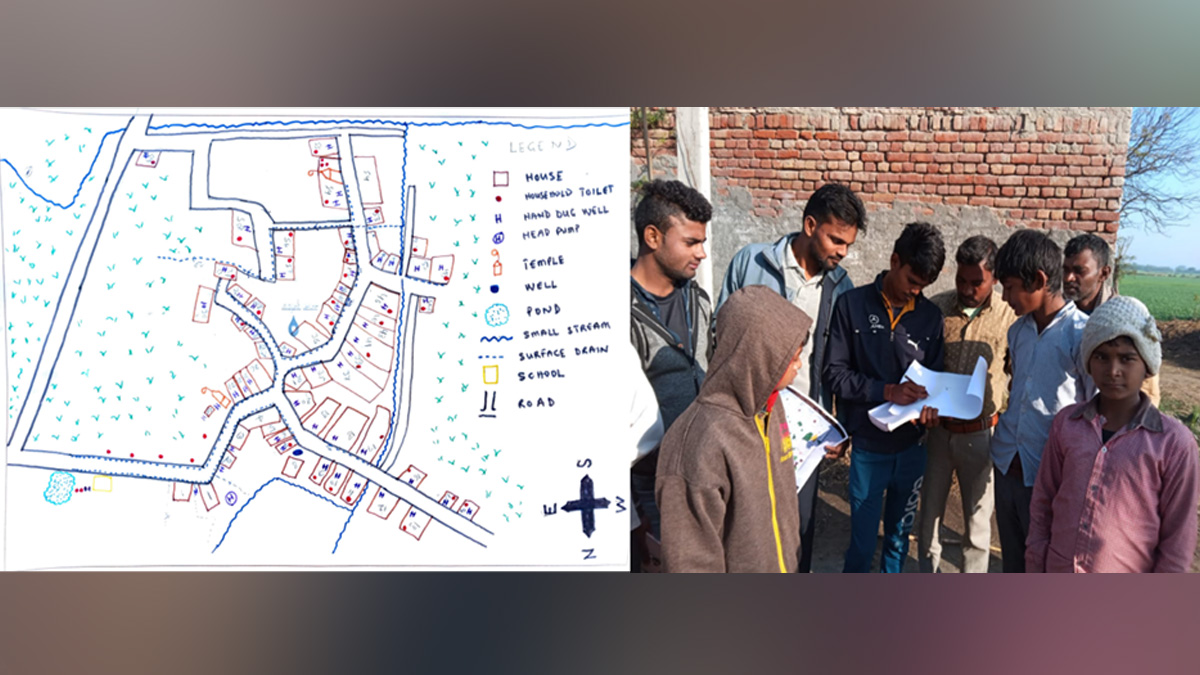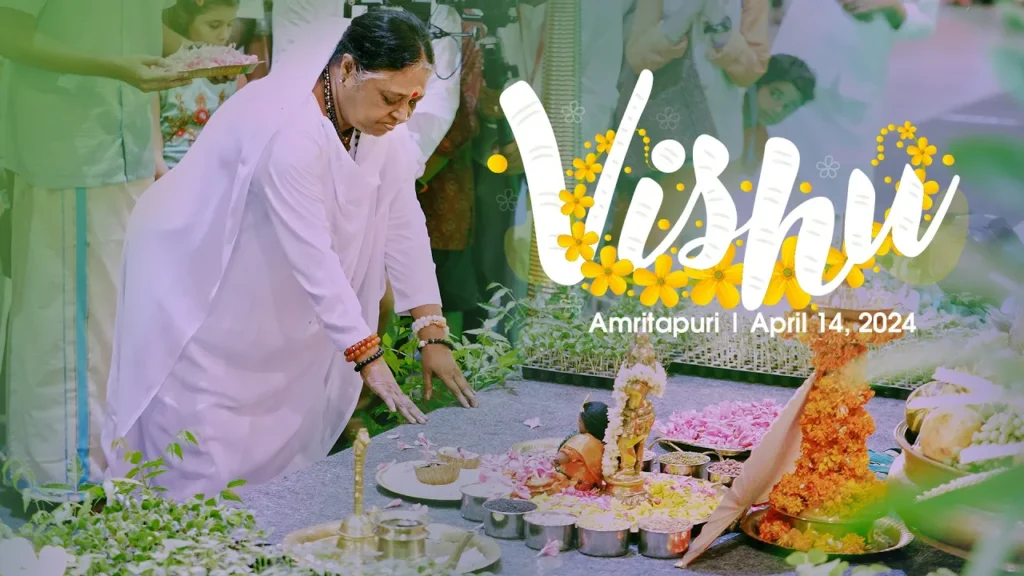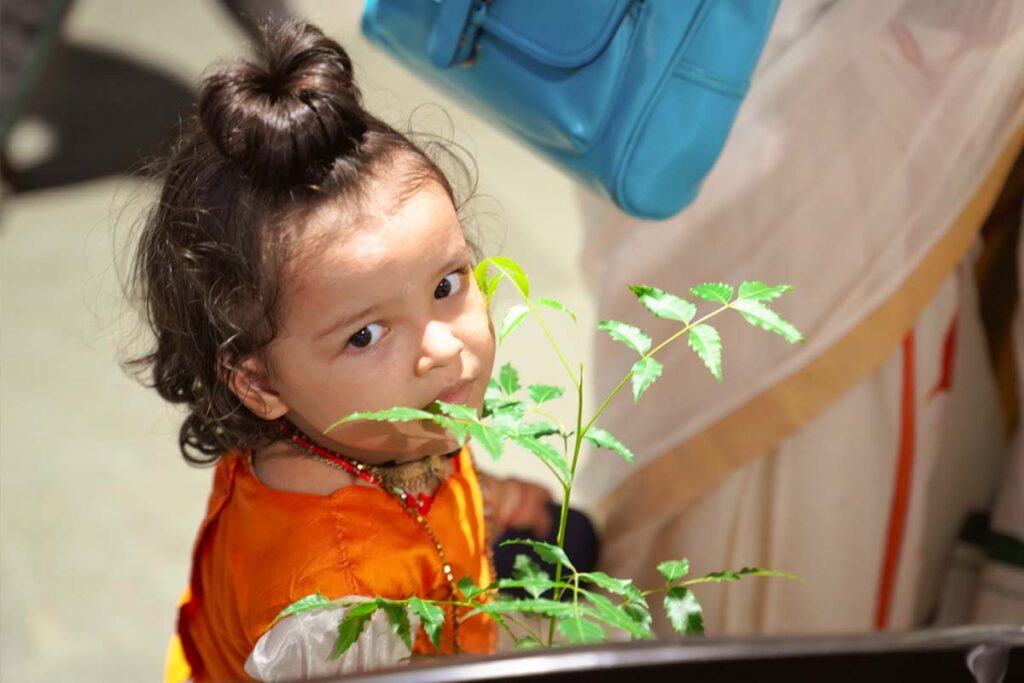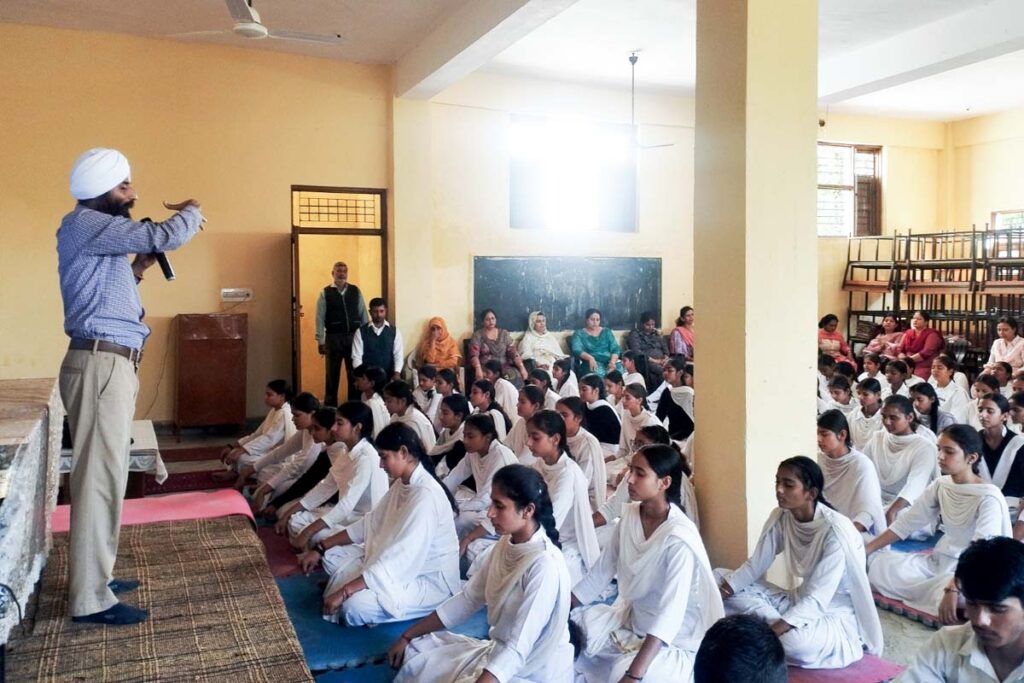Researchers with the Civil 20 working group for Sustainable and Resilient Communities collaborated with locals in Nagla Chandi to find a solution, especially for wastewater that was flooding the primary school compound and affecting the Jivamritam system for safe drinking water.
From February 4 to 9, 2023, a team from Amrita Vishwa Vidyapeetham visited Nagla Chandi, a small village in Uttar Pradesh’s Mathura District. One of the major problems is the mismanagement of drainage systems, which causes wastewater to flow through shallow drains and get collected in a pond adjacent to the wall of the village’s only Government primary school.
The results are frequent flooding in the school compound, which also affects the Jivamritam drinking water treatment system there. Jivamritam was installed by the Ashram in 2019 to provide the community with safe drinking water. The pond’s proximity to the school wall also compromises its integrity and puts the children at risk.
The team from the university included researchers with the Amrita School for Sustainable Development, who are under the UNESCO Chair on Experiential Learning for Sustainable Innovation and Development. They are also contributing to the Civil 20 Working Group for Sustainable & Resilient Communities that is an initiative of the Indian Government’s G20 Presidency.
Taking part were Martin Kanyagui, E4LIFE PhD Scholar; Renjith Mohan, Live-in-Labs® Coordinator; Dr. Yogesh Velankar, Program Director, UNESCO Chair and Faculty member; and Dr. Sajithkumar K.J., Senior Research Scientist. The larger mission is to follow up on ongoing research and development to advance sustainable development in the community.




Nagla Chandi has a population of about 350 people and is an agricultural community. A detailed village resource plan was developed as part of a Participatory Rural Appraisal process. A transect walk through the community with the help of the resource map helped to identify the houses that discharged the wastewater, especially greywater into nearby shallow open drains.
The heads of all houses that contributed to the wastewater ejected into the pond were invited to brainstorm on a long-term solution. The primary school’s Principal was also contacted as an important stakeholder.
Based on the initial engagement, the Pradhan of the village (village head) was contacted to discuss the problem. He agreed to review the situation and engage with the community to collectively agree on the best solution for the challenge.
The Amrita research team, the Pradhan, and the community members then decided to remove all buffalo waste and fuel wood that obstructed the flow of wastewater towards the main drain and took up space on the road.
It was also planned that a bulldozer be sent to the site to clear a path for wastewater to reach the village’s main drain on the outskirts. Two days after the brainstorming session, the machine was deployed, and the process of building a new drain began.
The intervention of the research team emphasised the need to strengthen the Village Water and Sanitation Committee’s capacity to deal with similar situations in future. It also highlighted the importance of collaboration among public sector institutions, communities, and Civil Society Organisations (CSOs) in resolving community issues and achieving the United Nations Sustainable Development Goals (SDGs).





